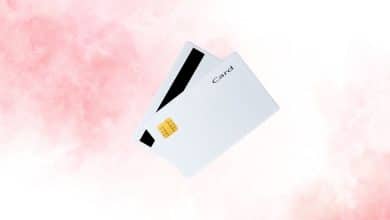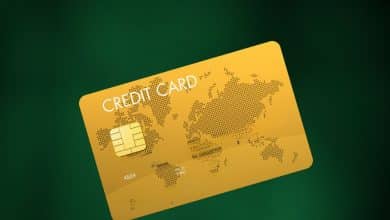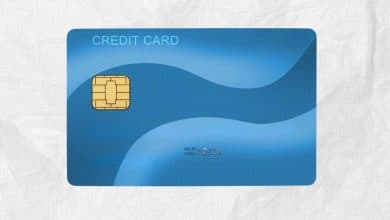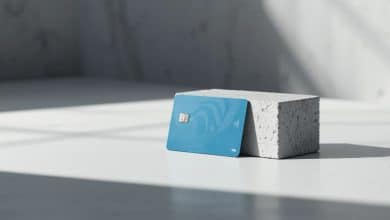Exclusive Credit Card Benefits: How They Work and How to Use Them
Understanding exclusive credit card benefits is key for both new and seasoned users. These perks can greatly improve your shopping experience. They offer many advantages tailored to your needs. This article will explore these benefits, explaining how they work and how to use them in Nigeria.
Credit cards give you access to a line of credit for purchases, balance transfers, and cash advances. You must make minimum payments each month to avoid interest. With brands like Visa, Mastercard, and American Express, it’s vital to know the terms and conditions. By understanding credit card perks, you can make better financial decisions and enjoy rewarding experiences.
Understanding Credit Cards and Their Role
Credit cards are important financial tools given out by banks and financial groups. They let users borrow money for purchases. Unlike debit cards, which use your account balance, credit cards require you to pay back with interest if you don’t clear the balance by the due date.
Credit cards do more than just help you buy things. They offer rewards, cashback, and discounts based on your needs. There are many types of credit cards for different uses, like travel, shopping, or emergencies. Knowing how they work is key to managing your money well.
It’s important to know the costs of credit cards, like interest rates, known as Annual Percentage Rates (APR). These rates can make the total amount you owe higher if you don’t pay it back. Annual fees and late payment fees can also add up. But using them wisely can help improve your credit score, making it easier to get loans in the future.
Credit cards also come with benefits like purchase protection and tools for managing your budget. They make shopping safer and more convenient, especially when traveling abroad. This is because credit cards are widely accepted worldwide.
To sum up, understanding credit cards and their complex workings helps you make smarter financial choices. It lets you get the most out of these versatile financial tools.
Exclusive Credit Card Benefits: How They Work and How to Use Them
Exclusive credit card benefits offer big advantages for those wanting to improve their financial life. Cards like the American Express Platinum Card and the Chase Sapphire Reserve give users special offers. These offers help increase spending power and reward points.
Many cards let you earn rewards points and cash back on what you buy. For example, the Citi Double Cash® Card gives 2% cash back on all purchases. This makes it great for daily shopping. Rewards can save you money or get you things you want, like travel perks.
To get the most from these benefits, you need to know how they work. High-end cards offer special perks like lounge access, insurance, and cash back for certain spending. For instance, the American Express Platinum Card gives you access to over 1,400 airport lounges. It also offers up to $200 in Uber Cash each month. Planning ahead can make your life better with these benefits.
Knowing how to use exclusive credit card benefits is key. Some cards need you to meet a minimum before you can get your rewards. Understanding these rules helps you use your card’s benefits better. This makes it easier to get the most out of your credit card.
The Various Types of Credit Cards
Knowing about the different credit cards can help you pick the best one for your money needs. There are many types of credit cards, each made for different people.
- Rewards credit cards let you earn cash back, points, or miles on what you buy. Many cards give more rewards for things like dining, groceries, and gas.
- Cash back credit cards let you use rewards as statement credits, gift cards, checks, or bank deposits. This makes it simple to get real benefits from your spending.
- Travel credit cards help you earn points or miles for flights, hotels, rental cars, and more. They make traveling better.
- Secured credit cards are for those with little or no credit history. You need to put down cash to get a small credit line. They’re good for starting to build credit.
- Student credit cards are for young people. They usually don’t have an annual fee. They help students start building their credit.
- Store credit cards are from specific stores. They offer special rewards or discounts to loyal customers.
Choosing the right credit card can really help with money management and getting more rewards. Looking at the different types of credit cards helps you find the best one for your spending and financial goals.
Commonly Available Cardholder Benefits
Credit cards offer many benefits that make them a popular choice. They include fraud protection, travel insurance, and purchase protection. These credit card perks add security and peace of mind. They also help in case of financial issues or disputes.
Many credit cards let you withdraw cash interest-free for 45 to 50 days. This makes it easier to manage your finances. Some cards, like those from IDFC FIRST Bank, offer unlimited reward points that never expire. This adds more value to using your card.
Credit cards also provide personal accident coverage and travel insurance. They offer airport lounge access, priority check-ins, and discounts on entertainment, dining, and shopping. These benefits show the wide range of using card benefits.
Using credit cards wisely can help improve your credit score. Monthly statements help you track your spending and plan payments. In today’s world, where convenience is key, credit cards are essential for consumers.
One-Time Bonuses: How They Work
Many credit cards offer enticing one-time bonuses to attract new applicants. These bonuses can be cashback, gift cards, or points. They often require a certain amount to be spent within a short time. Knowing how these offers work can help you get the most out of your credit card.
Requirements for Earning Bonuses
To get one-time bonuses, you usually need to spend a certain amount. This amount can range from $500 to $5,000 in the first three months. Travel rewards cards often have higher bonuses for bigger spending goals than cash back cards.
Timing is key. You must spend money within the first 90 days to qualify. The time it takes to get your bonus can vary. It might be two billing cycles, or up to six to eight weeks, depending on the issuer.
Tips for Maximizing Your Bonus
To maximize your bonus, plan your spending. Make big purchases like weddings or vacations early to meet spending needs. Using your card for regular expenses like groceries or bills can also help.
Look out for promotional periods or sign-up events. Bonuses can be worth a lot, with some cards offering up to 100,000 points or cash bonuses from $50 to $250. Taking advantage of these can lead to big rewards and benefits right after you open your account.
Cash Back Credit Cards: Pros and Cons
Cash back credit cards are a simple way to earn rewards on your spending. They give you a percentage of your purchases back as cash. This encourages you to use credit wisely. Knowing the good and bad points of cash back helps you pick the right card.
How Cash Back Works
Cash back credit cards work in a straightforward way. You earn a percentage back on every purchase. This percentage usually ranges from 1% to 5%.
There are different types of cards. Some offer the same percentage for all purchases. Others give more rewards for things like groceries or gas.
While cash back is attractive, there are limits. You often need to spend at least $25 to get your rewards. Some cards have limits on how much cash back you can earn. Others might have higher interest rates, which can hurt your finances.
A late payment can lead to extra interest and even losing your rewards. So, it’s key to understand the pros and cons of cash back to manage your money well.
Rewards Points Explained
Learning about credit card rewards can really change the game for smart shoppers. Many cards have a rewards points system. This means you earn points for every dollar you spend. For example, some cards give 1 point per dollar on all purchases. Others offer 2X to 5X points for things like travel or dining.
How many points you get depends on the card and what you buy. Travel cards give more points for travel, which is great for those who travel a lot. The American Express Platinum Card, for example, gives 5X points for flights and hotels. This encourages smart spending for travelers.
When it comes to using your points, you have several options. You can get statement credits, shop through portals, or book travel. Points are usually worth about 1 cent each. But, using them for travel can sometimes get you more value.
- Cash back cards may return up to 6% on groceries.
- Referral bonuses allow for additional points when friends successfully sign up.
- Welcome bonuses, such as those from the Amex Platinum, can significantly boost point totals.
To get the most out of your card, it’s important to understand how points work. Keep an eye out for special offers and rebates. These can help you earn more points. Knowing how to redeem your points means you’ll get the most value from your rewards program.
Frequent-Flyer Miles: Maximize Your Travel Perks
Frequent-flyer miles open doors to amazing travel perks. To get the most out of these miles, it’s key to know how to earn travel rewards. Airlines have their own loyalty programs, where you can earn miles by flying and spending. Travel credit cards can also help you earn miles faster, offering chances for upgrades and free flights.
Best Practices for Earning Miles
To maximize frequent-flyer miles, you need a smart strategy. Here are some top tips:
- Utilize Airline Credit Cards: Cards like the Delta SkyMiles Gold American Express give 2X miles on dining and Delta purchases. They offer 1X miles on all other purchases. The Chase Sapphire Preferred card boosts earnings with categories like 5X points on travel booked through their platform.
- Take Advantage of Welcome Bonuses: New cardholders can get big welcome bonuses. For example, the Chase Sapphire Preferred card gives 60,000 points after spending $4,000 in the first three months. This increases your travel rewards.
- Engage in Dining and Shopping Programs: Join airline dining programs to earn extra miles at certain restaurants. Also, shopping portals linked to airlines offer extra miles for online shopping.
- Family Pooling: Some programs, like Frontier Miles, let you share miles with up to eight family members or friends. This makes earning and using travel rewards more flexible.
- Pay Off Balances Monthly: To enjoy airline rewards fully, pay off your credit card balances every month. This avoids high interest payments that can reduce the value of your miles.
Safety and Security Benefits of Credit Cards
Credit cards are a safe choice for payments. They offer fraud protection, which is a big plus. If your card details get stolen, you won’t be blamed for any unauthorized charges. This makes shopping online or in stores safer.
Credit card companies also help when there’s a problem with a purchase. If you find an error or disagree with a merchant, you can dispute the charge. They will look into it, giving you more security than cash or checks.
Using a credit card is not just for buying things. It also protects you with benefits like travel insurance and extended warranties. This means you can save money if something unexpected happens. So, choosing a credit card over cash or checks is a smart and secure move.
FAQ
What are credit card benefits?
How can I maximize my credit card benefits?
What is the difference between cash back and rewards points?
Are there risks associated with using credit cards?
What are the common requirements for earning sign-up bonuses?
How does fraud protection work with credit cards?
What types of credit cards are available?
Can I transfer my rewards points between different credit cards?
What should I consider when choosing a credit card?
Published on: 25 de August de 2024

Abiade Martin
Abiade Martin, author of WallStreetBusiness.blog, is a mathematics graduate with a specialization in financial markets. Known for his love of pets and his passion for sharing knowledge, Abiade created the site to provide valuable insights into the complexities of the financial world. His approachable style and dedication to helping others make informed financial decisions make his work accessible to all, whether they're new to finance or seasoned investors.






